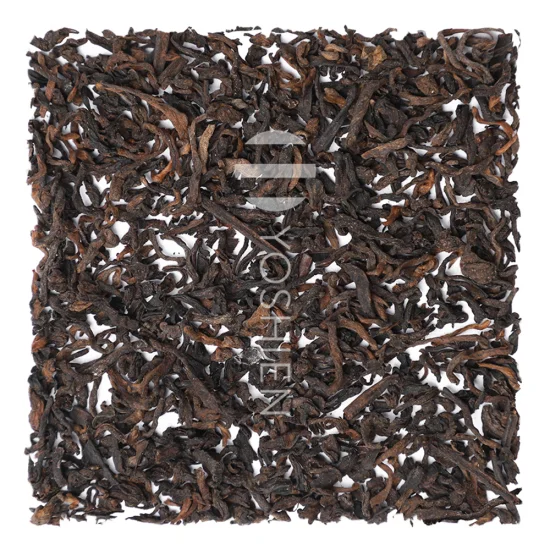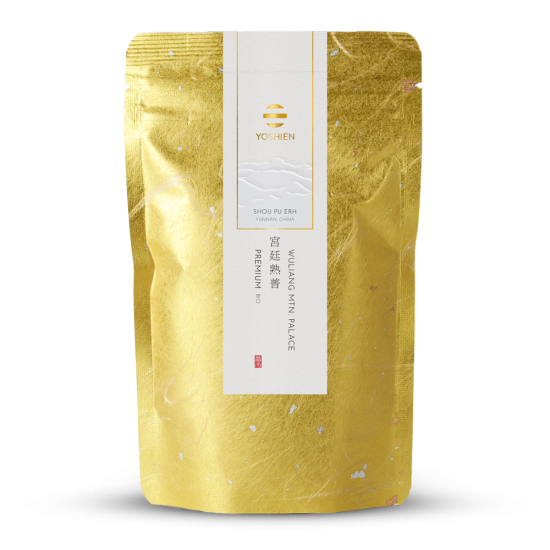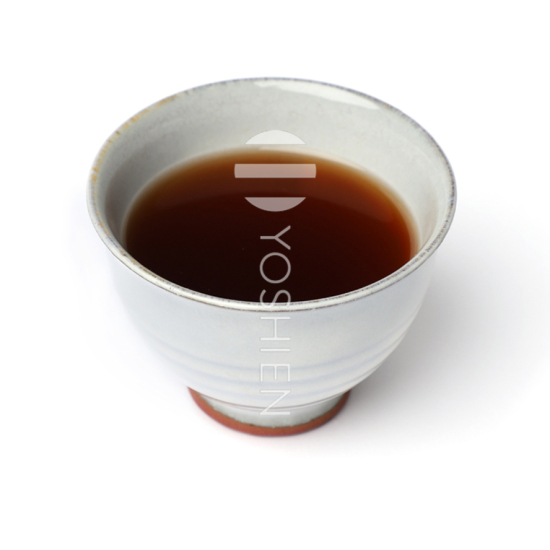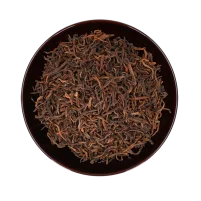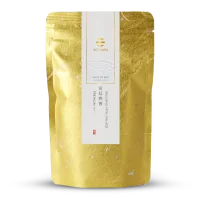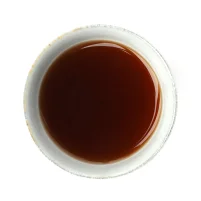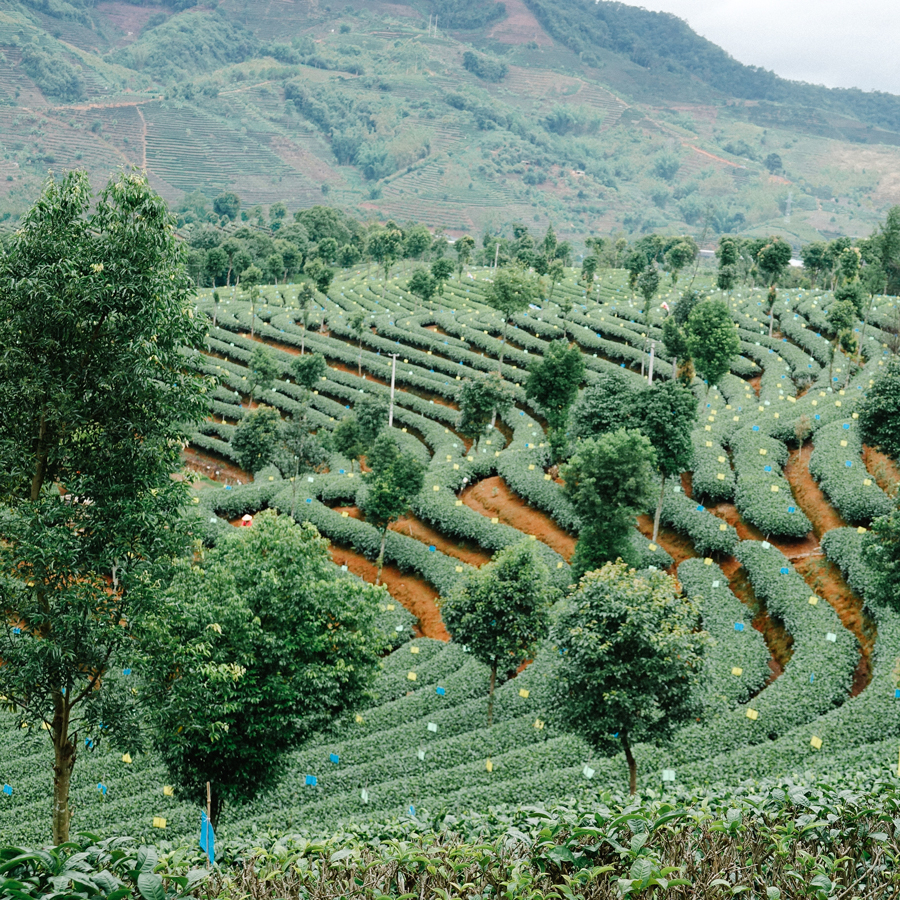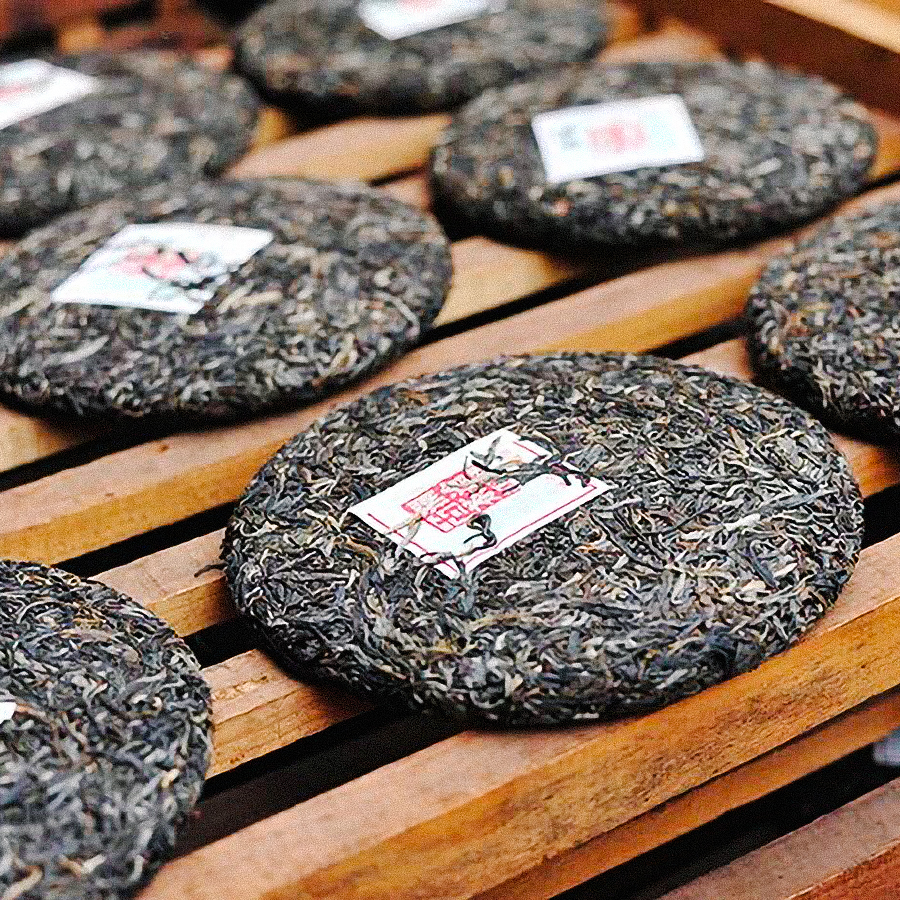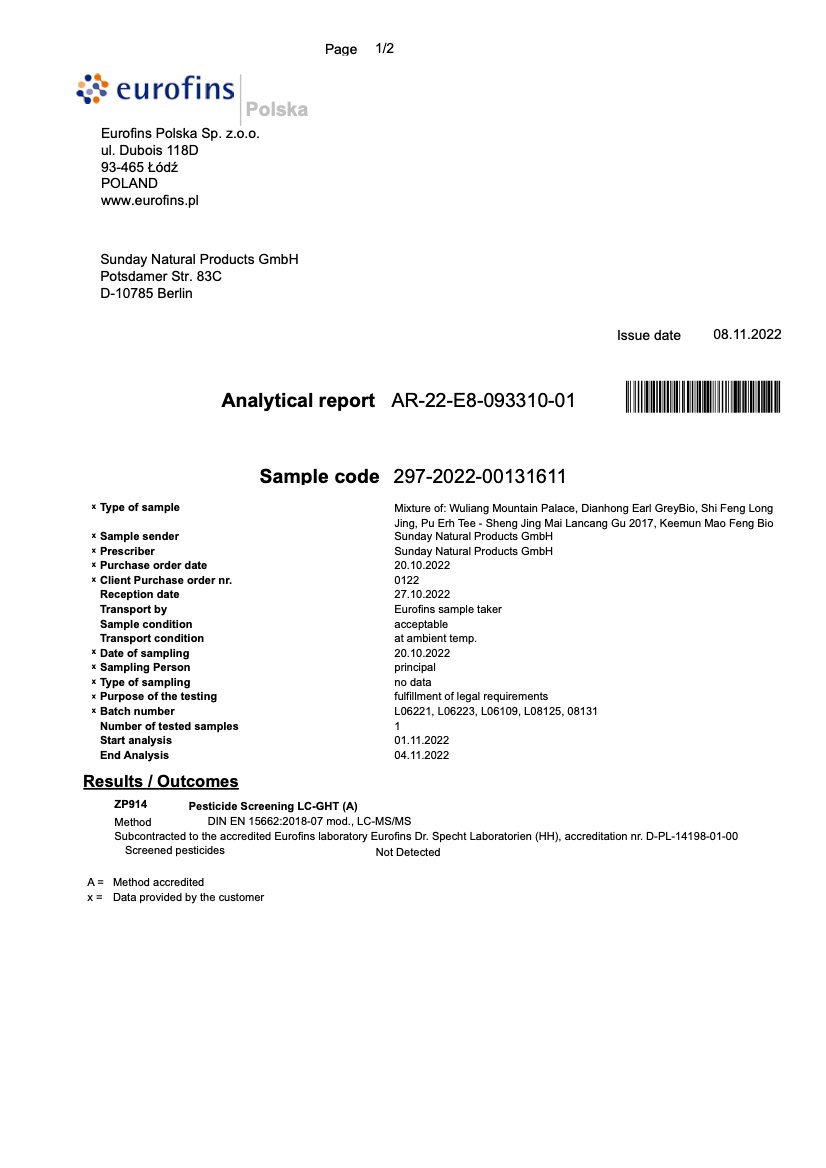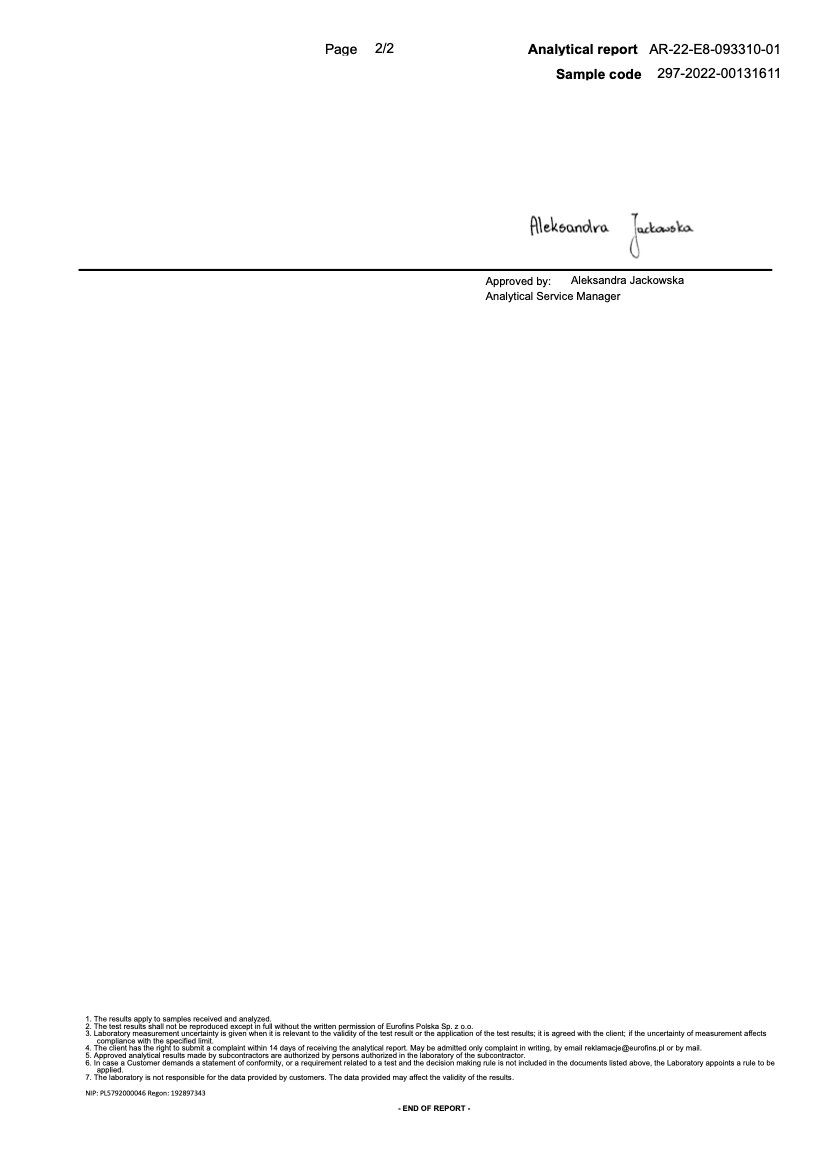The highlands of Yunnan have a mild, subtropical climate up to a high elevation. The highland slopes are mostly southern-facing, and are therefore more heavily influenced by the Indian Ocean and the Pacific.
This tea is grown at an elevation of 1,500m in the Wuliang Mountains above the city of Pu'er, far removed from industry. Rather than any major motorways, it is the historical Tea Horse Road that cuts through the tea fields. Traditionally, various large leafed cultivars are grown in Yunnan that in some cases stem from very old tea plants.
Indoor withering, oxidation stopped via oven heating (kill green), sun-drying, indoor fermentation (60 days), oven- and sun-drying (1 hour / 8 hours), leaf selection
The tea is first withered indoors, then the first phase of oxidation is halted via brief oven heating known as kill green. For the first drying period thereafter, the tea is laid out in the sun. Then the tea is stacked in layers indoors so that it can ferment for 60 days in a stage known as piling. Lastly, the tea is briefly dried mechanically and then again outdoors in the sun. The final selection of leaves is then made according to strict quality standards.
Centuries-Old Pu-Erh Trees
The tea plants needed for producing Pu-Erh are autochthonous, large-leafed, and wild-grown tea plants. In contrast to generic tea plants grown around the world, this type does not grow as a bush, but rather as a tree that can live for up to thousands of years. Scientific study of the Camellia taliensis suggests that this tree is the common ancestor of all other types of tea. This cultivar is native to the region where China, Vietnam, Laos, and Myanmar meet. This is also where the Chinese province of Yunnan is located, and the history of Yunnan is also intertwined with the first known attempts to cultivate tea. For this reason, Yunnan is often considered the "cradle of all teas". In the tea forest of Yunnan, each tree has an individual character with a different shape and different cultures of moss and fungi. As such, each tree produces its "own" tea. The older the tree, the deeper its roots extend into the earth and into deep layers of rock and stone. These older trees can absorb minerals and trace elements that are passed on to the leaves and buds. The tea made from the buds and leaves of wild-grown older trees is thus rich in minerals and highly desirable.



